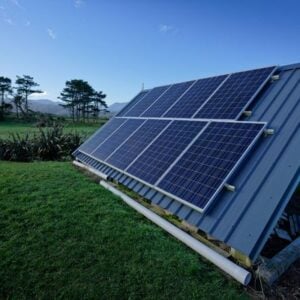The China International Development Cooperation Agency (CIDCA), the United Nations Development Programme (UNDP), and the Chingeltei District of Ulaanbaatar have launched the “Upgrading Ger Districts in Ulaanbaatar Through Solar Photovoltaic System Implementation” project to address air pollution and advance Mongolia’s just energy transition. Air pollution in Ulaanbaatar, largely driven by coal burning in ger districts, accounts for nearly 60% of PM2.5 emissions, resulting in over 7,100 premature deaths annually and economic losses equivalent to 10% of the country’s GDP. The project replaces coal-based heating with solar-powered systems featuring heat storage technology and smart meters, aiming to improve public health, reduce greenhouse gas emissions, and serve as a scalable model for clean energy deployment nationwide. Funded by CIDCA’s Global Development and South-South Cooperation Fund, the initiative will support 450 households in Chingeltei District over two years, building on UNDP’s successful 2023–2024 pilot and emphasizing a sustainable, market-based approach rather than one-time grants.
The project will install mini photovoltaic (PV) grids with battery storage and smart meters, household-level solar heating systems, and real-time monitoring for carbon credit verification. It also includes community training programs and awareness campaigns to highlight the benefits of renewable energy. Special attention will be given to gender-responsive capacity building and promoting women’s leadership in renewable energy, ensuring that the transition creates opportunities for all residents and leaves no one behind.
Local officials highlighted the transformative potential of the project. The Deputy Governor of the Capital City, Amartuvshin Amgalanbayar, emphasized that renewable energy offers a practical and effective solution to Ulaanbaatar’s severe air pollution, promising cleaner air, healthier living conditions, and a sustainable future. Chingeltei District Governor Manduul Nyamandeleg stressed the urgency of the transition, noting that residents deserve clean air and affordable energy, and expressed hope that the model could be scaled to benefit additional households.
H.E. Shen Minjuan, China’s Ambassador to Mongolia, reiterated China’s commitment to green development and support for Mongolia through CIDCA, highlighting the initiative as a reflection of international cooperation for a sustainable future. UNDP Resident Representative Matilda Dimovska underlined the project’s role in driving systemic change, stating that a just energy transition requires innovation, investment, and cooperation at all levels to reduce coal dependency while ensuring inclusive benefits for all communities.







